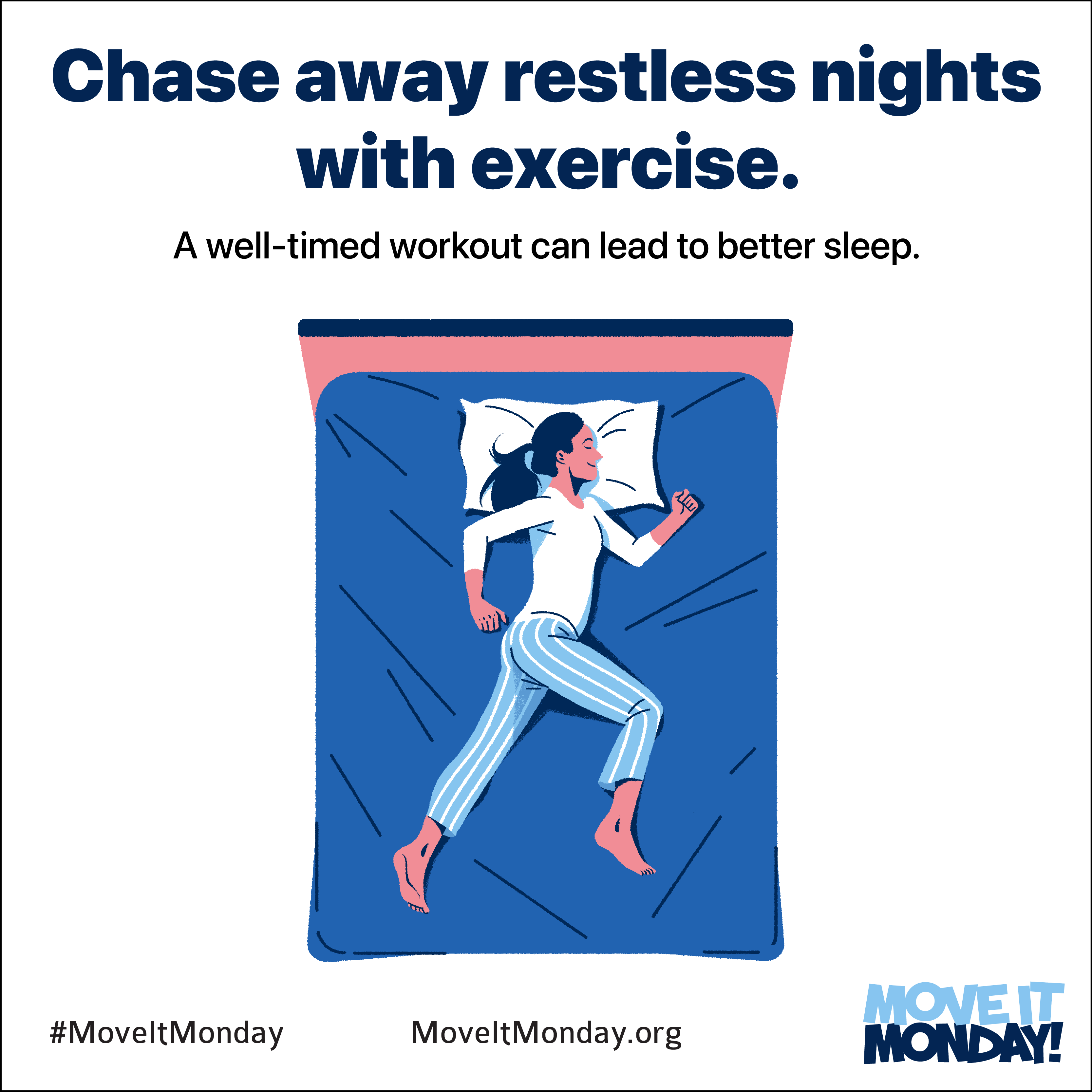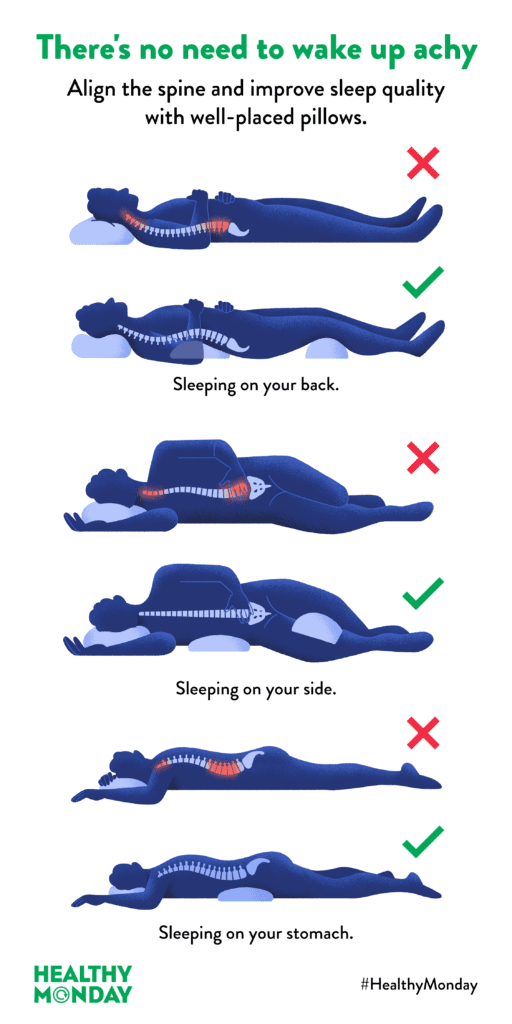REST - Week 11
Weekly Sleep Topic
Weekly Integrative Sleep Technique Video
Patient Sleep Resources
Weekly Sleep Topic
Don’t underestimate the healing properties of a good night’s sleep. Scientists have studied the subject extensively, and have concluded that sleep, although a bit mysterious, plays a critical role in immune function, metabolism, memory, learning, and other vital processes.
Going to sleep can be difficult, especially if you’re stressed, anxious, or uncomfortable, but there’s a natural sleep-aid that’s easy and accessible to everyone — exercise. Research suggests that moderate physical activity can decrease instances of sleep complaints and insomnia, and can make a notable difference/improvement in sleep quality. Moderate aerobic exercise increases the amount of slow wave sleep (also referred to as deep sleep) you get each night. This category of sleep gives the brain and body a chance to rejuvenate, and can also help stabilize mood and benefit cognitive functioning.
And while exercise at all times of day is generally considered good for sleep, exercising or stretching at the right time can be even better. If the evening is your optimal exercise window, it is recommended to exercise at least 2 hours before bed; this gives your brain and body time to wind down. The exercise doesn’t have to be especially rigorous, engage in light aerobic exercise like a jog, fast-paced walk, or even some yoga, stretching, or tai chi. After 30 – 90 minutes post exercise, your body’s core temperature should return to normal, which makes for prime sleeping conditions.
Dance Your Way To Wellness
Weekly Patient Sleep Resources
Click here to download the Sleep Ergonomics graphic.
Epic Smartphrase: .ErgonomicsSleep

